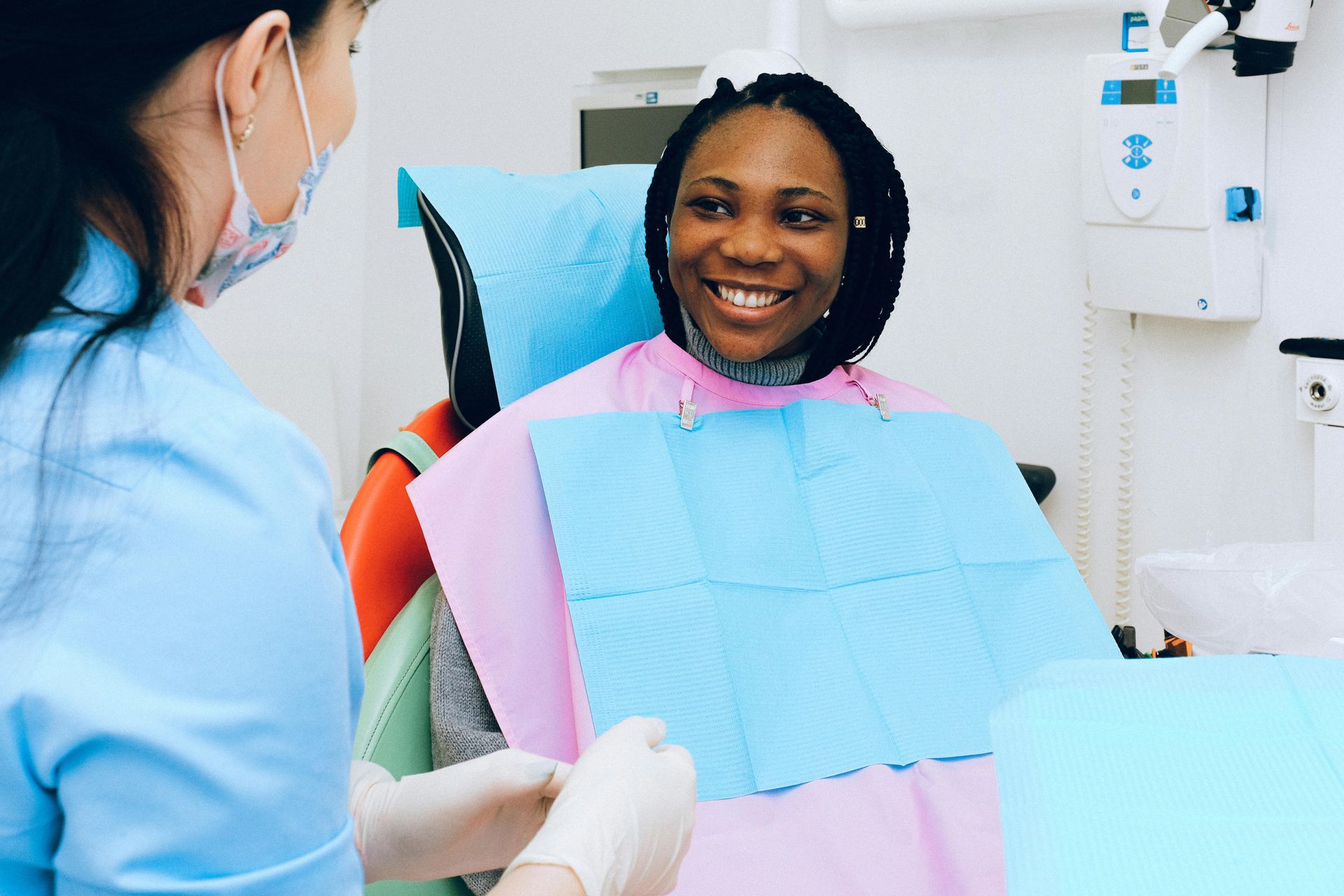Dental Care for Older Adults – Part 1
May 21, 2023
Dental Health for the Elderly and the Risk of Oral Health Problems
While as kids we might have gotten a certain squealing delight seeing our grandparent’s false teeth deposited in a bedside glass, the oral health of senior adults is nothing to be taken lightly. While dentures are still common among older adults, they’re also an indicator of the serious oral health concerns faced by millions of seniors, including decay and tooth loss, as well as other health issues related to those problems.
It’s essential to remember that oral health is about far more than aesthetics and appearance. Oral health problems like tooth decay and gum disease can contribute to the onset of other very serious health issues, including heart disease and bacterial infections.
The sad truth is that 68% of older adults suffer from some form of gum disease, and almost 20% suffer from untreated cavities.
At Stephens Dentistry, the dental health of our seniors is a major concern, and with this blog we’re beginning a four-part series dealing with the dental health challenges faced by older Americans. We will begin examining some of the specific dental health challenges confronting many of the nation’s senior citizens.
The Unique Dental Health Challenges Faced by American Seniors
Millions of our senior citizens face special challenges making it difficult for them to maintain healthy teeth and gums, and as we’ve said, this lack of proper oral care can lead to other very serious health problems.
The following are some of the common reasons older adults often don’t get the dental health care they need.
1) Lack of Access
A 2014 study by the National Library of Medicine of a group of 184 older adults found that 89% of them needed dental treatment of various kinds, but almost half of them had not gotten it. This study found that one of the main reasons for this neglect was the lack of access.
Lack of access to dental care comes in two forms, the absence of transportation and the dearth of dental insurance. Many elderly Americans can no longer drive themselves to dental appointments and lack other means of reliable transportation.
As to dental insurance, a lot of the private dental plans for seniors provide only very limited coverage. Further, Medicare does not provide dental coverage, and fewer than half of state Medicaid plans provide coverage for comprehensive dental care.
All this means that seniors will often be required to pay out of pocket for dental care, and there are many who simply cannot afford to do this.
2) Cost of Dental Care
As stated, without dental insurance, seniors have to reach into their own pockets to pay for dental visits, something many of them simply cannot afford to do. A recent study by the Kaiser Family Foundation found that seniors on Medicare spent on average $922 annually on dental care, while almost 20% paid out over $1,000. For many seniors on fixed incomes, this expense is beyond their means.
3) Poor Dental Care Extending Over a Lifetime
The Centers for Disease Control and Prevention estimates that one in five older adults has an untreated source of tooth decay. The problem may well have started but neglected when they were younger, and now that they’re older, their limited income works against getting proper treatment.
Unfortunately, the longer dental problems go untreated, the worse they tend to get. A neglected dental issue that may have been easily treated in years past, over time may develop into a serious dental problem leading to gum disease, root damage, and the loss of teeth.
4) Medical Conditions Affecting Teeth and Gums
We know, of course, that as we age we run an increasing risk of developing serious health issues. Some of these have a direct effect on our oral health, while others indirectly contribute to dental issues.
The National Institutes of Health, for example, tells us that both hypertension and diabetes increase the risk for oral health problems.
At the same time, health issues like rheumatoid arthritis and Parkinson’s disease can make it more difficult for seniors to brush and floss, while cognitive problems like dementia and Alzheimer’s may cause seniors to neglect their oral hygiene.
5) Medications Affecting Teeth and Gums
Millions of senior citizens must take a host of medications to deal with everything from blood pressure, high cholesterol, asthma, overactive bladders, and depression, to name just a few.
One of the unfortunate side effects of many of these medications, however, is dry mouth, which is more than just a nighttime nuisance. According to the National Health Service, dry mouth can lead to a host of related issues, including difficulty speaking, eating, and swallowing, mouth infections, and tooth decay and gum disease.
Coming Next Month
From this summary, you can see some of the particular challenges seniors face when it comes to maintaining their oral health.
Next month, in Part 2 of this series, we will examine some of the most common oral health problems faced by older adults.
Appointments for Seniors
In the meantime, if you know a senior needing dental care, we urge you to do everything you can to assist them in getting the treatment they need.
At Stephens Dentistry we always welcome new patients, and we want to do all we can to protect the dental health of our senior citizens.
Please call us, or have your senior relative or friend call us, as soon as possible to schedule their initial appointment at Stephens Dentistry.







